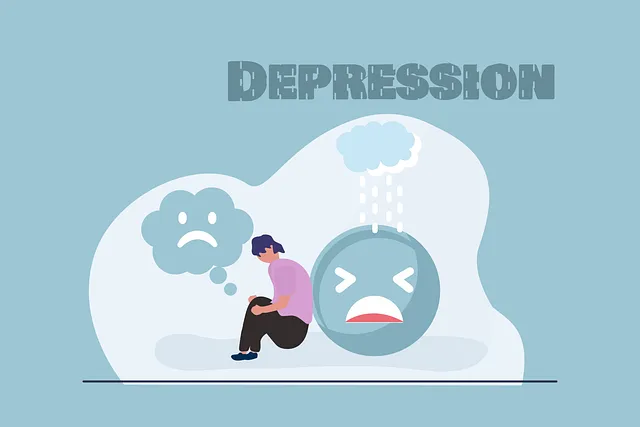Arvada Kaiser Permanente's behavioral health services stand out for their comprehensive risk assessment and harm minimization strategies, as highlighted in positive reviews. They prioritize self-awareness exercises, crisis intervention guidance, and inner strength development to equip individuals with resilience. This approach addresses environmental risks and client vulnerabilities, enhancing service quality and fostering trust. Their unique strategy includes therapeutic programs, support groups, and workshops focusing on self-esteem, conflict resolution, and anxiety relief. Reviews emphasize burnout prevention, mental wellness coaching, and "mind over matter" principles for emotional well-being. By integrating trauma support services, public awareness campaigns, and continuous improvement based on feedback, Arvada Kaiser Permanente ensures relevant, impactful harm minimization planning, contributing to community well-being.
Risk assessment and harm minimization planning are critical components in providing safe and effective behavioral health services. This article explores these essential practices, offering insights from Arvada Kaiser Permanente’s approach. We delve into understanding risk assessment as a cornerstone of safety, highlighting their behavioral health focus. Key elements of successful harm minimization planning, best practices for implementation, and continuous improvement strategies through monitoring are examined. For those interested in behavioral health services reviews, this guide provides valuable knowledge on ensuring patient safety.
- Understanding Risk Assessment: A Cornerstone of Safe Services
- The Kaiser Permanente Arvada Approach: Behavioral Health Focus
- Key Elements of Effective Harm Minimization Planning
- Best Practices for Implementing Risk Management Strategies
- Continuous Improvement: Monitoring and Evaluating Safety Measures
Understanding Risk Assessment: A Cornerstone of Safe Services

Risk assessment is a fundamental process for any organization aiming to deliver safe and effective services, especially in behavioral health sectors like Arvada Kaiser Permanente’s reviews highlight. It involves meticulously evaluating potential risks and their impact on clients and staff, ensuring that proactive measures are in place to mitigate harm. By employing Self-Awareness Exercises and Crisis Intervention Guidance, these institutions can foster a culture of Inner Strength Development, empowering individuals to navigate challenging situations with resilience.
Through comprehensive risk assessment, behavioral health services can anticipate and address various hazards, from environmental factors to client-specific vulnerabilities. This proactive approach not only enhances service quality but also fosters trust among clients, knowing their well-being is at the forefront of every decision made by care providers.
The Kaiser Permanente Arvada Approach: Behavioral Health Focus

Arvada Kaiser Permanente takes a unique approach to risk assessment and harm minimization by prioritizing behavioral health services. This strategy is designed to address the root causes of many risks, focusing on mental well-being as a foundational element for overall community safety. By integrating behavioral health into their risk management plans, they aim to create a supportive environment that promotes resilience and empowers individuals to manage challenges effectively.
The organization’s Arvada location offers a range of services, including therapy programs, support groups, and workshops, all tailored to enhance self-esteem, improve conflict resolution techniques, and provide anxiety relief. These reviews consistently highlight the positive impact of their behavioral health initiatives, demonstrating that by investing in these services, Kaiser Permanente Arvada is fostering a healthier, safer community.
Key Elements of Effective Harm Minimization Planning

Effective harm minimization planning involves several key elements that Arvada Kaiser Permanente behavioral health services reviews often highlight. Firstly, burnout prevention is paramount, focusing on strategies to safeguard mental wellness and prevent staff exhaustion. This includes regular breaks, workload management, and access to support networks. Secondly, the integration of mental wellness coaching programs development can empower individuals to cultivate coping mechanisms, enhance resilience, and promote self-care practices, all of which are essential in mitigating potential harms.
Additionally, adhering to mind over matter principles encourages a proactive approach to mental health. By fostering a mindset that prioritizes emotional well-being, these principles enable individuals to navigate challenges more effectively. Through tailored interventions and accessible resources, Arvada Kaiser Permanente behavioral health services reviews underscore the importance of comprehensive harm minimization planning in creating healthier, more supportive environments both within healthcare settings and beyond.
Best Practices for Implementing Risk Management Strategies

Implementing effective risk management strategies requires a structured approach that prioritizes safety and well-being. At Arvada Kaiser Permanente behavioral health services, we emphasize proactive measures to mitigate potential risks and promote positive outcomes. One best practice is integrating Trauma Support Services tailored to address historical or current traumatic experiences, which can significantly impact an individual’s mental health. These services empower patients with coping skills development, enabling them to navigate challenges more effectively.
Additionally, public awareness campaigns play a pivotal role in educating communities about behavioral health issues. By fostering open dialogue and breaking down stigmas, these campaigns encourage individuals to seek help early on. Regularly reviewing and updating risk assessment protocols based on the latest research and feedback from patient reviews, such as those for Arvada Kaiser Permanente behavioral health services, ensures that strategies remain relevant and impactful. This continuous improvement process is key to enhancing harm minimization planning and overall community well-being.
Continuous Improvement: Monitoring and Evaluating Safety Measures

Continuous improvement is a cornerstone of effective risk assessment and harm minimization planning within organizations like Arvada Kaiser Permanente’s behavioral health services, as demonstrated through positive reviews. By regularly monitoring and evaluating safety measures, these institutions can adapt to evolving challenges and emerging trends in mental health care. This proactive approach ensures that the strategies employed for Stress Reduction Methods and Mental Illness Stigma Reduction Efforts remain relevant and impactful.
The process involves assessing the effectiveness of implemented programs, gathering feedback from patients and staff through reviews like those at Arvada Kaiser Permanente, and analyzing data related to patient outcomes and satisfaction levels. These insights are crucial in identifying areas where improvements can be made, whether it’s enhancing Self-Care Routine Development for Better Mental Health or refining existing interventions. Through such continuous evaluation, behavioral health services can foster a culture of safety and well-being, ultimately contributing to improved patient care and outcomes.
Risk assessment and harm minimization planning are vital components in providing safe and effective behavioral health services, as exemplified by the successful strategies employed by Arvada Kaiser Permanente. By understanding risk assessment as a cornerstone of safety, implementing key elements of harm minimization planning, and continuously monitoring improvements, we can ensure that these services meet the highest standards. The best practices outlined here serve as a guide for organizations to enhance their risk management strategies, ultimately fostering safer environments for both clients and providers, as reflected in the positive reviews of Arvada Kaiser Permanente’s behavioral health services.






